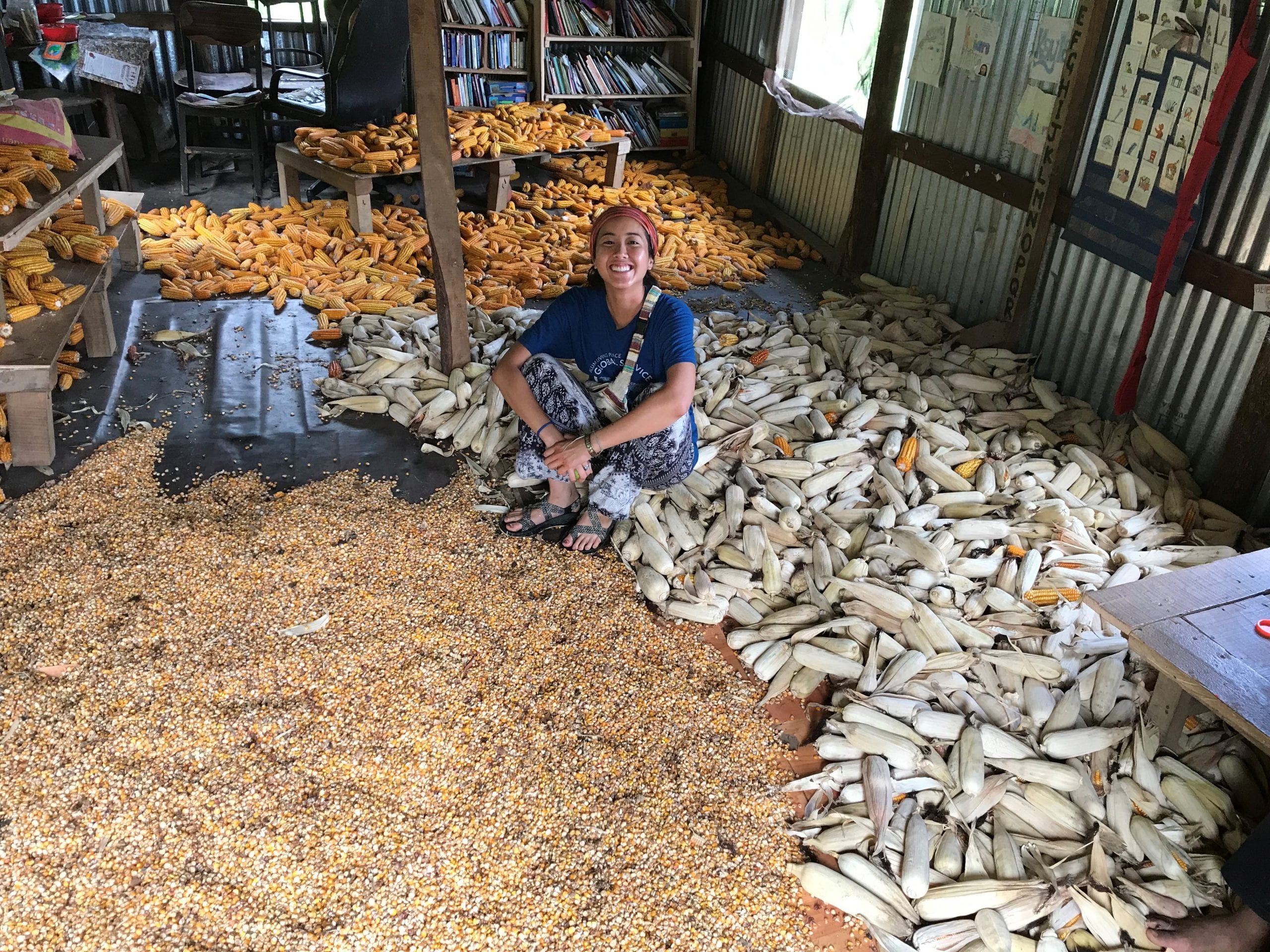Global Service Scholar: Lara Nguyen
Country: Nepal
To find the precise combination of descriptive words and phrases to elaborate upon my time here in Nepal would simply do a disservice to all the experience has done for me. When I sat in the terminal waiting for my departing flight, I struck into conversation with local Nepali citizens by asking “so what did you think of Nepal?” And all I could conjure up was: it is a beautiful country and so colorful. It didn’t suffice, I know it didn’t— but I hope she could tell the twinkle in my eyes (or slight tear) reflected every smile, hug, and “Namaste” I received that were filled with love. So to the random family who offered me lessons, advice and stories at the airport to which I could only respond with so very little, here is how I truly feel about your country:
Your country is a beautiful and rare place consisting of vibrant and loving individuals. If I learned anything from my experience, it is to quite literally “love thy neighbor”— truly, wholly and fully to flourish. Small acts from borrowing mangos from a neighbor’s tree to villagers helping to carry our overpacked bags up and down the mountain during monsoon weather, I’ve come to find that no favor is ever a burden. Which would explain why it is culturally abnormal to say “I’m sorry” or “thank you” because good deeds and intent are simply implied and do not need the affirmation of words. Despite having the lack of government support and infrastructure, the community and its strength overcomes that deficit. I remember seeing local villagers, who were strangers prior, come together to fix the roads for the betterment of overall community. Even further, after day 1, I realized every villager and Her Farm called us brother and sister representing a familial bond despite coming from across the world. The sense of community here overrides all blood bond and personal possessions are void. It occurred to me at the farm that nobody owned anything— finances were communal, clothing was widely shared and even the kids belonged to everyone and equally cared for by every mother. Our director and mentor spoke very true words that will forever guide me: “you don’t own your possessions, your possessions own you.” Which indicates that most of our stressors and hardships often derive from losing things, seeking things, or striving to afford things. Things, things, things often drive our motives, intentions and ultimately demise. I’ve learned that once we rid these notions that materialism equates to happiness, we can begin to live by the mantra less truly is more; more fulfilling, more compassionate, and more mindful.
Living off of a duffel bag consisting of a week’s worth of clothing for a month-long journey required me to conquer my materialistic fear of slightly soiled clothing and repeating outfits. It was so rewarding and enlightening to learn the Nepali way of life because I’ve learned sustainable alternatives in comparison to our lifestyle in the US. We hand-washed our clothing, used handheld bidets instead of toilet paper, and utilized plant-based materials for household items such as scrubbers, brooms, and medicine. Our showers and hot water were heated through solar power panels and even more fascinating, our very own manure undergoes a decomposition reaction to create gas and energy for the kitchen appliances. We often assume the West’s way is the best way—however we fail to consider environmental impacts the way Nepali culture does.
Embarking on this trip, I suspected to leave feeling more determined and proud of my intended career path of international development work within NGOs. However, after volunteering at Her Farm with daily wisdom from our director, I am leaving more confused, uncomfortable and pessimistic for this path. Arguably, these could very well be the ingredients for paving new and improved roads (literally and figuratively) for international aid. As with all things seemingly good, the system and network of NGOs and non-profits is terribly flawed and often incurs more harm than good to the communities they are seeking to help.
In Nepal specifically, there are hundreds of non-profit organizations stationed in the capital city, yet very few in rural villages in which 80% of the population resides. Thus, it is difficult for NGOs operating in distant cities to address the real issues at hand based the real needs of villages.
A prominent example would be how international aid is often oriented towards public health issues such as STD and HIV prevention training, or temporary health clinics which don’t address the root causes at hand— a toxic culture. To truly uproot issues such as sexually transmitted diseases, for instance, cultural mentalities such as oppressive patriarchy would first need to be addressed. Her Farm is a prime example of a non-profit that challenges these traditional norms by giving women autonomy, property and an income to eradicate a male-dominated society entirely. Therefore, these villages don’t need more school buildings or temporary health clinics— they need an educated and equal population to bolster standard of living to sustain themselves. Volunteering at Her Farm has given me first-hand experience and insightful knowledge to navigate my personal aspirations towards sustainable development that works.
Thank you Nepal and Her Farm for rejuvenating my soul and heart with love and happiness. And thank you to Living Peace and Blum Center for the opportunity of a lifetime that will forever change the trajectory of my personal and career paths.

